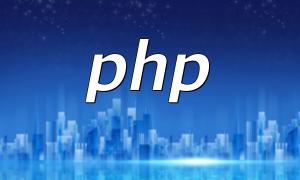PHP is a widely used server-side scripting language in web development. By default, PHP passes variables by value, meaning that the variable passed into a function is a copy. However, in certain cases, reference passing is more desirable, especially when dealing with memory management and object lifecycles. Introduced in PHP 7.4, weak references offer a solution to such scenarios.
A weak reference allows referencing an object without preventing it from being garbage collected. This feature is particularly useful in situations like cache management or event-driven systems where maintaining long-term references could lead to memory leaks.
In PHP, you can create a weak reference using the WeakReference class as shown below:
$object = new stdClass();
$weakRef = WeakReference::create($object);
Here, an object $object is instantiated and then wrapped with a weak reference using the WeakReference::create() method, resulting in $weakRef.
You can retrieve the original object from a weak reference by calling the get() method:
$objectRef = $weakRef->get();
If the original object still exists, get() will return it. Otherwise, it returns null, indicating the object has been destroyed.
When building cache systems, it’s often necessary to store objects for quick access. Traditional references can prevent these objects from being garbage collected, leading to unnecessary memory usage. Weak references allow temporary access to objects without interfering with memory cleanup.
Circular references occur when two or more objects refer to each other. This can block PHP’s garbage collector from reclaiming memory. Weak references help resolve this by breaking the strong link between objects, enabling proper garbage collection.
In event-driven applications, multiple handlers and event bindings are maintained. Keeping these references using standard methods can result in memory retention. Weak references offer a lightweight and memory-safe way to manage such bindings.
PHP’s weak references provide developers with a powerful tool for managing memory more efficiently. Especially in complex scenarios involving caching, circular references, or event handling, weak references help prevent memory leaks and optimize application performance. By understanding and utilizing this feature, developers can write cleaner, more efficient PHP code.









